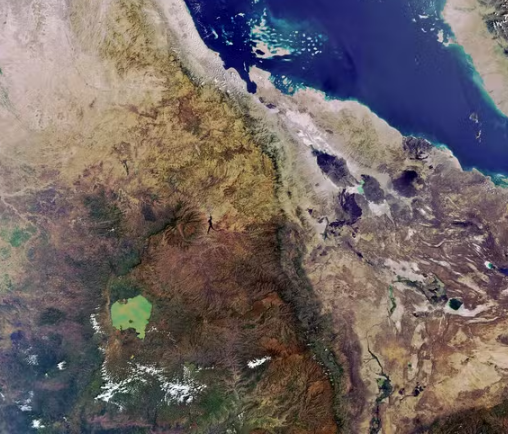An international team of researchers has uncovered new evidence showing that the African continent is gradually breaking apart. This phenomenon is caused by intense heat rising from deep within the Earth, which pushes the tectonic plates and stretches the ground in East Africa.

The study, recently published in Nature Geoscience, reveals that this movement is not constant but occurs in periodic pulses — as if the planet had a “geological heartbeat” centered in the Afar region, located in northeastern Ethiopia.
This area is one of the most geologically active on Earth, marking the junction of three major rifts in the planet’s crust: the East African Rift, the Red Sea Rift, and the Gulf of Aden Rift. It is precisely here that the tectonic plates are slowly moving apart, opening up the land and creating cracks that stretch for kilometers — some of which can even be seen from space.
Previously, scientists knew that heat from the mantle was pressing against the crust in this region, but they did not fully understand the timing or exact pattern of this process. Now, new analyses show that the flow of heat from the Earth’s interior occurs in cycles, reshaping the terrain intermittently and explaining why the continent’s breakup happens at different speeds across the area.
According to geologist Emma Watts, from Swansea University in the United Kingdom, the mantle beneath Afar “is not static — it pulses,” and these pulses carry distinct chemical signatures that reveal variations in heat flow.
Researchers believe that, over millions of years, this activity could lead to the formation of a new ocean, completely separating East Africa from the rest of the continent — a fascinating reminder that our planet is still in constant motion. 🌋




More
Humpback Whale Spotted Resting Near the Coast of Praia Grande
The Science Behind the Record: Croatian Diver Holds His Breath Underwater for 29 Minutes
New Species of Poisonous Frog Discovered in the Peruvian Amazon